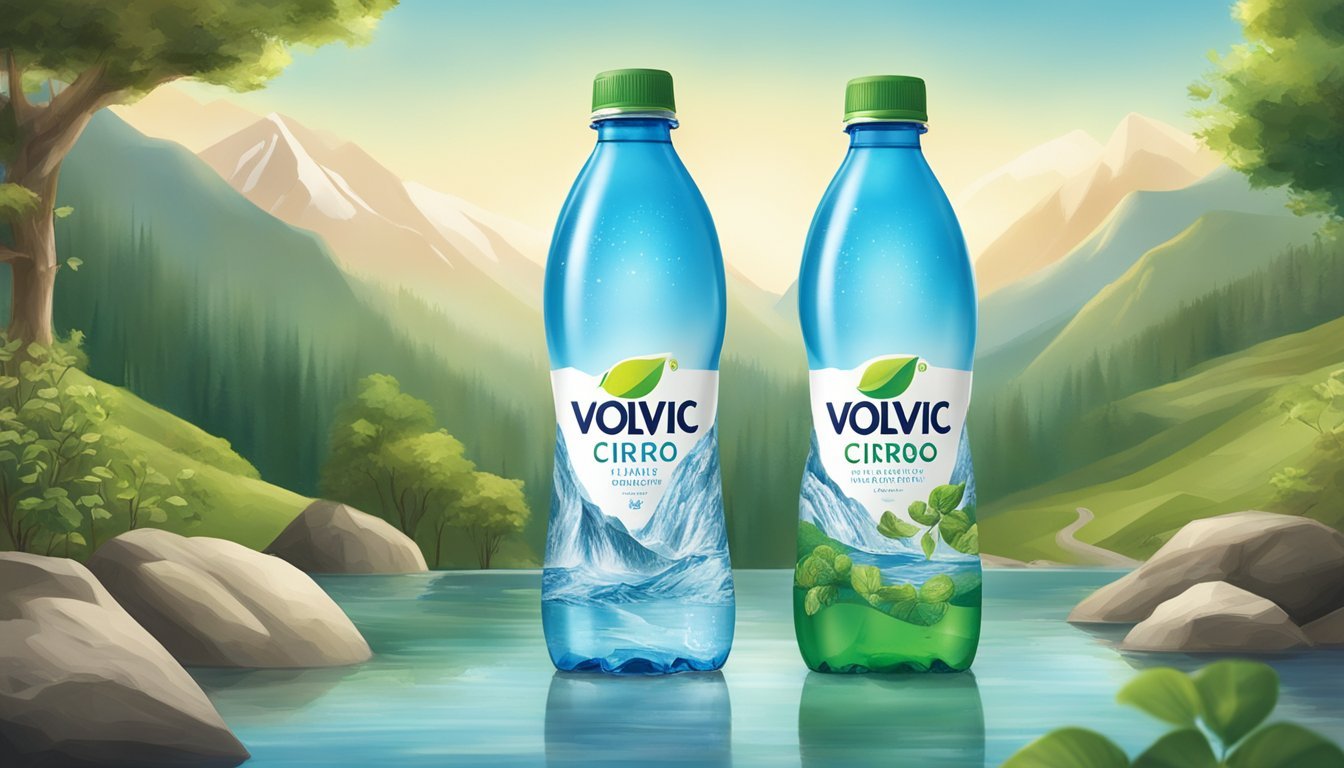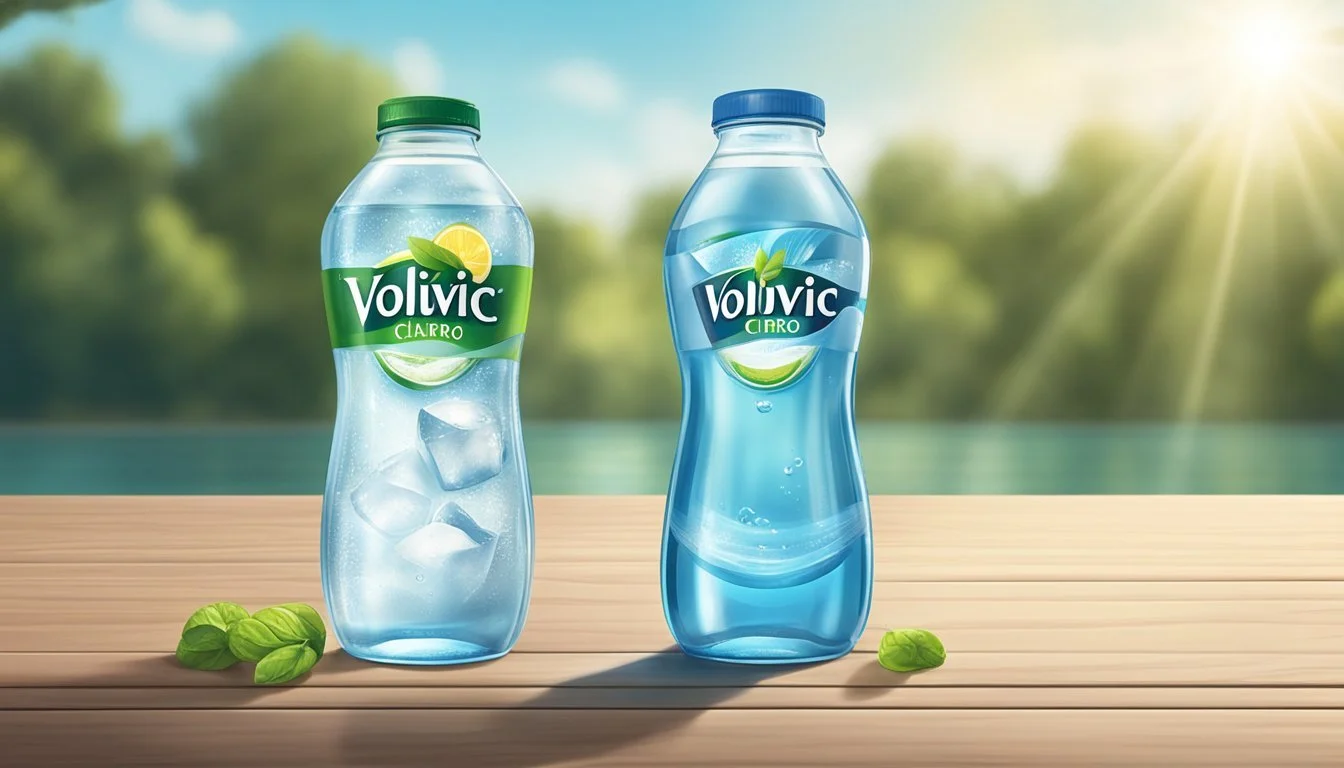Volvic vs. Cirro
Which Bottled Water is Better for Health and Taste?
When selecting the best bottled water for hydration, many debates boil down to two popular brands: Volvic and Cirro. Volvic, sourced from the Auvergne volcanic region in France, is known for its unique mineral content and smooth taste. Cirro, on the other hand, boasts a crisp and clean profile that appeals to those who prefer a more neutral flavor.
Consumers often consider the mineral composition, taste, and environmental impact of their bottled water choices. Volvic’s volcanic filtration process adds beneficial minerals like magnesium and calcium, while Cirro emphasizes purity through rigorous purification methods. By comparing these aspects, readers can determine which bottled water aligns better with their personal preferences and lifestyle.
The environmental considerations are equally significant. Volvic offers eco-friendly packaging options, whereas Cirro emphasizes sustainability with its commitment to reducing plastic use. Picking the right bottled water goes beyond flavor; it’s about making informed choices that enhance hydration and support environmental sustainability.
Understanding Bottled Water
Bottled water comes in various types, each offering unique characteristics based on its source and the treatment methods used. These differences can impact both taste and health benefits.
What Is Bottled Water?
Bottled water is water that has been packaged in plastic or glass bottles for consumer consumption. It can be sourced from different places such as springs, wells, or municipal supplies.
Sources:
Natural Spring Water: Extracted from underground formations and naturally flows to the earth's surface.
Mineral Water: Contains various minerals and is obtained from protected underground reservoirs.
Purified Water: Undergoes a purification process like distillation, deionization, or reverse osmosis.
Health and Safety: Bottled water is subject to safety standards to ensure it is safe for consumption. These regulations cover aspects like contamination levels and certain chemical compounds.
Types of Bottled Water
Bottled water can be categorized based on its source and the treatment processes it undergoes. Here are some of the most common types:
Spring Water:
Characteristics: Naturally filtered by underground rocks and often contains minerals.
Examples: Volvic, sourced from volcanic regions, is known for its mineral content.
Mineral Water:
Characteristics: Contains high amounts of dissolved minerals like calcium and magnesium.
Health Benefits: The minerals can contribute to daily nutrient intake and promote health.
Purified Water:
Characteristics: Passed through various purification processes to remove contaminants.
Examples: Includes brands like Aquafina and Dasani, typically known for their crisp, clean taste.
Alkaline Water:
Characteristics: Contains higher pH levels, usually above 7.
Claims: Some believe it helps neutralize acid in the bloodstream and offers other health benefits.
Carbonated Water:
Characteristics: Infused with carbon dioxide gas, creating bubbles.
Examples: Brands like San Pellegrino and Perrier, often used as a refreshing beverage.
Understanding these different types helps consumers make informed decisions based on personal preferences and health considerations.
Brand Profiles
Volvic and Cirro are two distinct brands offering bottled water with unique qualities. This section delves into their origins, brand histories, and the core values driving each company.
Volvic: Origin and Brand History
Volvic originates from the Auvergne region in central France, a place known for its volcanic terrain. The brand taps into a natural spring that filters water through six layers of volcanic rock, enriching it with minerals.
Volvic, established in 1938, is a part of the Danone Group. The brand emphasizes its water's purity and natural filtration process. Over the years, it has gained a reputation for its consistent taste and quality. The company's commitment to sustainability is evident in their eco-friendly packaging and conservation initiatives.
Cirro: Company Background and Mission
Cirro is a newer entrant in the bottled water market, emerging from a commitment to providing pure, refreshing water. Sourced from natural springs, Cirro focuses on rigorous purification to ensure high-quality water.
Cirro’s mission centers around sustainability and health. The brand prides itself on its minimal environmental impact, using biodegradable materials for packaging. Their marketing emphasizes health benefits and hydration, aiming to make a positive impact on consumer wellness and environmental conservation. By maintaining a transparent supply chain, Cirro builds trust and loyalty among its growing customer base.
Water Quality and Composition
The quality and composition of Volvic and Cirro bottled waters are essential factors for consumers. These factors mainly depend on the mineral content and the source of the water.
Analyzing Mineral Content
Volvic and Cirro have distinct mineral profiles. Volvic water contains minerals like calcium, magnesium, and potassium, derived from filtration through volcanic rocks.
Mineral Volvic (mg/L) Cirro (mg/L) Calcium 11.5 8.5 Magnesium 8.0 4.5 Potassium 6.0 1.0 Sodium 9.5 2.0
Cirro's mineral content is relatively lower but balanced. This balance affects the water's taste and potential health benefits. Volvic's slightly higher mineral content can provide additional electrolytes.
The Role of Source Water in Quality
The water source greatly impacts the composition and purity. Volvic water originates from the volcanic region of Auvergne in France. This source ensures the water is naturally filtered through layers of lava rock.
Cirro sources its water from protected underground aquifers. These sources help maintain a consistent quality and pH level.
The purity and natural filtration process are significant. Volvic's volcanic origin contributes to its mineral content, while Cirro’s controlled aquifers focus on maintaining a clean and balanced mineral profile. These factors determine the unique qualities of each brand.
Health Benefits and Concerns
Volvic and Cirro both offer distinct health benefits and concerns related to their hydration properties and mineral content. Understanding how these bottled waters compare with tap water and other beverages can help consumers make informed decisions.
Hydration and Health Implications
Volvic, sourced from volcanic regions in France, contains natural minerals like bicarbonates that aid digestion and help maintain the body's pH balance. These minerals can alleviate indigestion and provide a subtle, smooth taste.
Cirro, often marketed for its electrolyte content, claims to support hydration and muscle function. Electrolytes such as sodium and potassium are essential for maintaining hydration, especially during intense physical activities, making Cirro a suitable choice for athletes.
Both waters avoid artificial sweeteners and preservatives, which appeals to health-conscious consumers. Unlike sugary drinks like Gatorade, which contain artificial additives, both Volvic and Cirro offer pure hydration without added chemicals.
Comparing with Tap Water and Other Beverages
Tap water remains a cost-effective and environmentally friendly alternative to bottled water. In most areas, municipal water undergoes rigorous testing to ensure safety, making it as safe as bottled options.
Gatorade and similar sports drinks contain vitamins, electrolytes, and sugars for quick energy replenishment. However, they also include artificial sweeteners and preservatives, which may not be desirable for all.
Compared to soda and artificially flavored drinks, Volvic and Cirro provide hydration without extra calories or unwanted additives. This makes them preferable for those looking to maintain a healthy lifestyle.
Both Volvic and Cirro offer distinct benefits related to their mineral content and hydration properties, but tap water remains a viable, economical choice for everyday consumption.
Taste Profile and Consumer Preferences
Volvic and Cirro each offer unique taste experiences influenced by their distinct sources and filtration processes, attracting diverse consumer preferences.
Flavor Differences of Volvic and Cirro
Volvic is sourced from a natural spring in the Auvergne region of France and is filtered through volcanic rock. This process gives Volvic water a clean, smooth taste with subtle mineral notes.
Cirro, on the other hand, is known for its refreshing and crisp flavor profile. Its purification process aims to remove impurities while maintaining a balance of natural minerals. This results in a water taste that many consumers describe as pure and slightly alkaline.
Aftertaste and Mouthfeel
Volvic water is frequently praised for its minimal aftertaste and gentle mouthfeel. The filtration through volcanic layers contributes to a soft, rounded finish that leaves the palate clean. This characteristic makes Volvic appealing to those who prefer a more neutral taste.
Cirro also excels with its clean aftertaste and light mouthfeel. The purification techniques used eliminate any undesired flavors, providing a crisp experience. Its slightly alkaline nature can leave a subtly refreshing finish, which many consumers find enjoyable and invigorating.
Both brands offer unique attributes that cater to specific preferences, and understanding these differences can guide consumers in choosing their ideal bottled water.
Environmental Impact and Sustainability
Volvic and Cirro both aim to address the growing environmental concerns associated with bottled water. Key considerations include packaging waste and how each company manages its natural resources.
Packaging and Plastic Waste
Volvic primarily uses plastic bottles, which raises concerns about plastic waste and pollution. Plastic has a significant environmental footprint due to its non-biodegradable nature and the resources needed for its production and recycling.
Cirro, on the other hand, offers solutions such as boxed water and glass bottles options. Boxed water is often more sustainable as it uses renewable materials and is easier to recycle compared to plastic. Glass bottles, too, can be recycled indefinitely, making them a better choice in terms of waste reduction.
Both companies are increasingly focusing on sustainable packaging, but Cirro's approach with boxed and glass options arguably has a lower environmental impact due to reduced plastic pollution.
Sourcing and Resource Management
Volvic sources its water from the Clermont-Ferrand region in France, focusing on preserving the natural resource by maintaining low-impact extraction techniques. This region is well-known for its clean and pristine water due to the volcanic filtration process it undergoes.
Cirro's water comes from rainwater collected in purified reservoirs. This method ensures minimal disruption to natural water systems and relies on a naturally replenishing resource. Cirro's approach in utilizing rainwater highlights its commitment to resource management and sustainability, as it does not deplete local groundwater reserves.
Efficient resource management is crucial for sustainability. While Volvic emphasizes maintaining the purity and natural balance of its volcanic water source, Cirro’s innovative use of rainwater exemplifies a forward-thinking approach to preserving natural resources for future generations.
Market and Availability
Volvic and Cirro bottled waters differ in their market presence, accessibility, and price, impacting how consumers can access and perceive value in these brands.
Retail Presence and Accessibility
Volvic enjoys substantial global distribution, commonly found in major grocery stores and convenience stores. It's present in widespread locations, including Europe and North America. Consumers can easily spot it among other premium brands like Evian and Fiji.
Cirro, on the other hand, has a more niche market. It may be found primarily in specialized health food stores and select retailers. This can limit its availability compared to the more globally recognized Volvic. While Cirro is growing in presence, it’s not yet as ubiquitous.
Price Comparison and Value
Volvic typically falls in the mid-range price category for premium bottled waters. It's often priced similarly to Smartwater and Life WTR. This makes it an appealing option for consumers looking for quality without a high premium associated with top-tier brands like Evian or Fiji.
Cirro, meanwhile, tends to be slightly more expensive due to its niche branding and limited availability. Consumers might find Cirro in the same price range as high-end options, reflecting its specialized positioning. This pricing strategy can affect its competitive edge in markets where budget-friendly options are preferred.
In summary, while Volvic is more accessible both in terms of availability and price, Cirro’s market position and pricing reflect its niche appeal.
Additional Considerations
When deciding between Volvic and Cirro, it's essential to look beyond basic taste and purity metrics. Innovations in the bottled water industry and the expertise of water sommeliers can affect your choice.
Innovations in Bottled Water
The water industry continuously evolves with new purification technologies and creative packaging solutions. Volvic, sourced from volcanic regions, benefits from natural filtration but also employs rigorous purification processes.
Cirro, on the other hand, uses reverse osmosis to strip the water of impurities and minerals.
Both brands have ventured into sparkling waters, tapping into the trend of carbonated beverages.
Modern advancements like ultraviolet light purification ensure that the water is free from harmful bacteria and pathogens.
Packaging innovations also play a significant role. Volvic uses eco-friendly plastic bottles, while Cirro focuses on reducing its carbon footprint through lightweight packaging.
The Role of Water Sommeliers
Water sommeliers have become pivotal in educating consumers about the subtleties of bottled water. These experts can differentiate waters based on minerality, pH levels, and mouthfeel.
For Volvic, the natural mineral content gives it a distinct taste, often described as smooth with a balanced mineral profile.
Cirro, through its light mineralization post-reverse osmosis, offers a different, often described as "supercharged," taste experience.
Sommelier guidance can help consumers make informed choices, weighing factors like health benefits and flavor preferences.
Their insights into sources and treatment methods add a layer of sophistication to what is traditionally viewed as a simple beverage.
More About Volvic
Mountain Valley Spring Water vs Volvic: Which Bottled Water is Better?
Volvic vs Kirkland Signature: Which Bottled Water is Better?
Volvic vs Richard's Rainwater: Which Bottled Water is Better?
Volvic vs Whole Foods Italian Still Mineral water: Which Bottled Water is Better?







